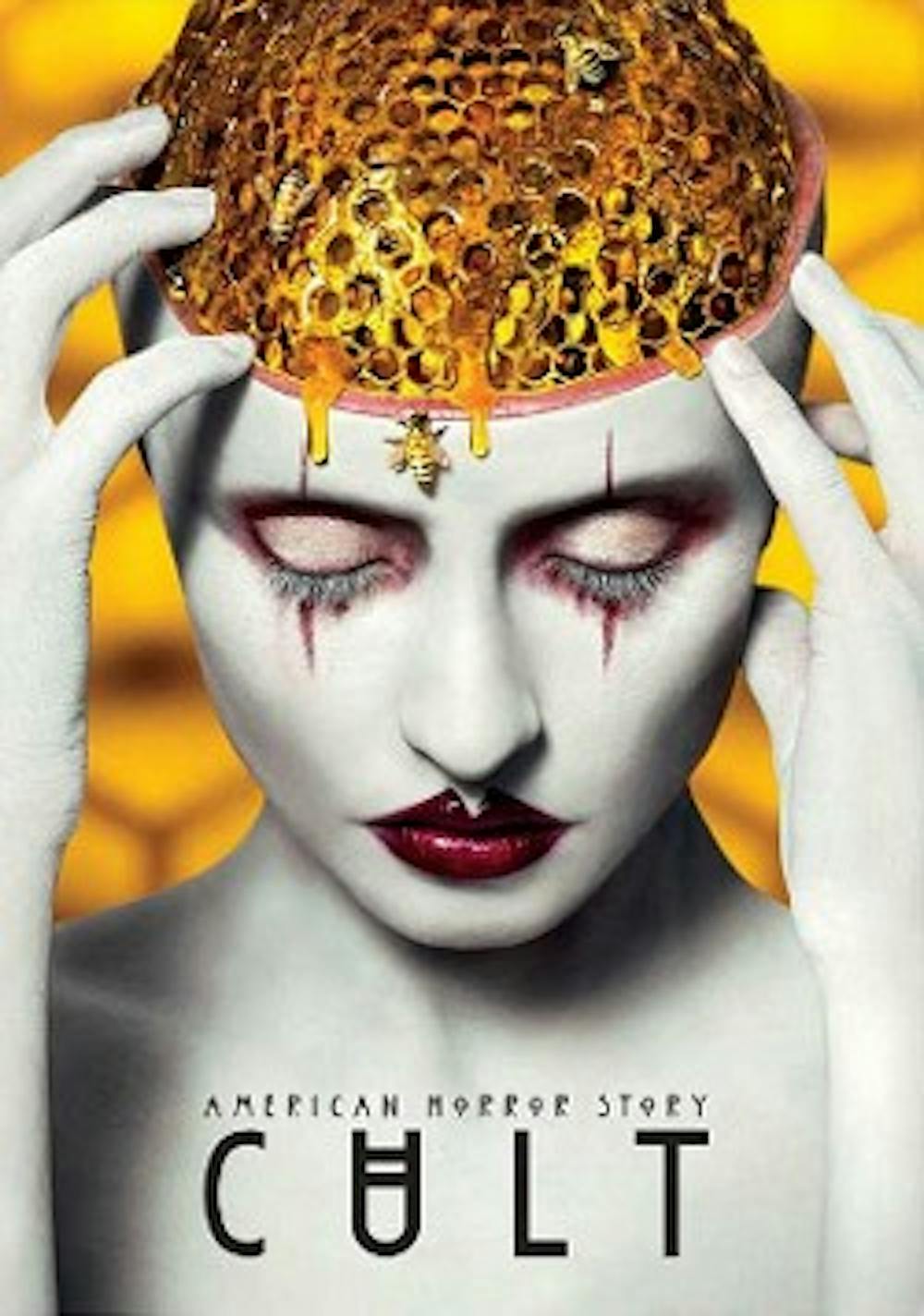“American Horror Story” always tries to push boundaries and examine societal frameworks. Previous seasons have focused on historical events — ranging from factually-accurate stories to those shrouded in myth. However, this season doesn’t look to the past and instead takes a deep-dive into contemporary issues.
Focusing on the 2016 election, “American Horror Story: Cult” pulls real footage of former Democratic nominee Hillary Clinton and President Donald Trump on the campaign trail for the premiere’s opening scenes, before heading to Michigan on the eve of election night.
“American Horror Story” veterans Sarah Paulson and Evan Peters return as the focal figures of the season, each representing one extreme of the political spectrum. Paulson portrays the upper-middle class liberal Ally Mayfair-Richards, who voted for former Green Party candidate Jill Stein in a protest vote but is horrified to find Clinton loses her own state by a smaller margin than what Stein garnered. On the other end is Peters’ greasy-haired Kai Anderson, who watches the election results alone in a dark room and whispers, “The revolution has begun” as Trump is declared the winner. While neither of these caricatures could be considered likeable, both actors play their respective parts admirably.
Newcomer Billie Lourd, who worked on showrunner Ryan Murphy’s short-lived series “Scream Queens,” portrays the character of Winter Anderson. A confusing character, Winter is a liberal Vassar student who supposedly put her academic life on hold to campaign for Clinton. Winter lives in the same house as the ‘alt-right’ outcast Kai, yet it is unclear whether or not the two characters are blood relatives or not. The show portrays Kai as the aggressor who has significant control over Winter in what seems to be an unusual brother-sister relationship.
The episode takes an interesting turn as the character’s storylines begin to interweave. Kai enlists Winter to take up the newly-available nannying position in the Mayfair-Richards home, for reasons yet to be understood. Taking on the role of the sadistic babysitter, Winter proceeds to interrogate Mayfair-Richards’ son Oz about which of his mothers is his “real mom” and where his father is. In the meantime, Winter forces him to watch snuff films as a “vaccination” for his mind while she bakes cookies.
The premiere plays on the uncertainty of an unreliable narrator. As the storyline switches between characters’ individual perceptions and others’ reactions, it becomes difficult to discern what is real and what is a figment of the imagination. Perhaps Murphy has found that the only thing scarier than the witches, vampires and supernatural spirits — which all terrorized characters in previous seasons — is the monster that lives in their own minds.
The commentary, if any, on the post-election world is unclear in the premiere. Kai is an outsider who has turned to Trump as some sort of messiah, while Mayfair-Richards represents the sheltered white liberal. These two aren’t interesting enough in their own right, but the implied link between the two of them carries a bit of pull.
The most interesting character so far is Winter, who is either incredibly complex or just plain baffling. The only place she has shown true emotion is with Kai, with whom she was candidly upset about Clinton’s loss — however, she seems to take pleasure in terrorizing little Oz. Can she be concerned with social justice while still being terribly sadistic? Is this what Murphy wants to show about the political divide — that there’s evil on both sides? At the moment, the show’s motives are unclear.
It remains to be seen whether Murphy is using the basis of the 2016 presidential election to explore greater issues within American society or simply as a ratings boost, à la “Saturday Night Live.” The premiere is open-ended, which in itself is intriguing. However, the intrigue could drop off in a few episodes, as some other seasons have.
Considering the unevenness of the series as a whole, the bar for “Cult” is not incredibly high. Though the premiere contains some promising clues, whether or not this season will be able to break away from the series’ downward spiral remains to be seen.







